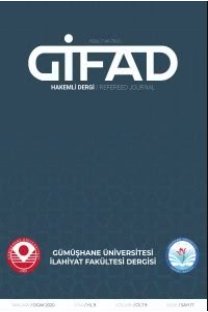Tüketicilerin yaşadıkları olumsuz satın alma deneyimlerine tepkileri: intikam mı, misilleme mi? (Consumer reactions to negative purchase experiences: revenge or retaliation?)
İntikam algılanan bir haksızlığa karşılık olarak cezaya uğratma veya zarar verme olarak tanımlanabilir. Tüketiciler de benzer şekilde olumsuz bir satın alma deneyimi, memnuniyetsizlik sonucunda kuruma tepki gösterebilmektedir. Peki, bu tepkiler ‘tüketicinin intikamı’ olarak isimlendirilebilir mi? Bu araştırmada öncelikle tüketicilerin bu davranışlarının intikam mı, misilleme mi olduğu tartışılmıştır. Ardından, daha önceden yaşadıkları olumsuz bir satın alma deneyimi sonucunda ilgili kuruma yönelik tepkide bulunmak amacıyla bir araya gelen tüketicilerin oluşturduğu bir internet topluluğunun üyelerine yönelik bir araştırma gerçekleştirilmiştir. Funches vd. (2009)’nin önerdiği, beş tüketici misilleme davranışı biçiminden (Maliyet/kayıp; Saldırma ve güç; Tüketimi Engelleme; Ses çıkarmak, ayrılmak ve ihanet; Boykot Etmek) oluşan sınıflandırma kullanılmış, araştırma sonucunda katılımcıların beş misilleme davranışı biçimine de başvurdukları gözlemlenmiştir.
Anahtar Kelimeler:
Tüketici, intikam, misilleme, çevrimiçi topluluklar
-
Revenge is the injury or infliction of punishment in response to a perceived injustice. In a similar vein, customers might react to companies as a consequence of negative or unsatisfactory purchase experience. But, can we entitle these reactions as “consumer revenge”? In this study we begin by discussing whether these consumer behaviors are revenge or retaliation? Following that the data obtained through structured interview method made to members of an online community that was formed by consumers who have experienced a negative purchase experience with the related company. Funches et al. (2009)’s categorization of retaliatory behaviors (cost-loss; consumption prevention; voice; exit and betrayal; and boycotting) was used to analyze the revealed data. The findings have shown that all retaliatory behaviors listed in the categorization were exhibited
Keywords:
Consumer, revenge, retaliation, online communities,
___
- AQUINO, Karl, TRIPP, Thomas. M. ve BIES, Robert J. (2006). “Getting Even or Moving On? Power, Procedural Justice, and Types of Offense as Predctors of Revenge, Forgiveness, Reconciliation, and Avoidance in Organizations.” Journal of Applied Psychology. 91(3), 653-668.
- BECHWATI, Nada N., ve MORRIN, Mauereen (2004). “Outraged Consumers: What Lights Their Fire?” Advances in Consumer Research. 31, 573-574.
- BEUGRE, Constant D. (2005). “Reacting Aggressively to Injustive at Work: A Cognitive Stage Model” Journal of Business and Psychology. 20(2), 291-301.
- COTA-MCKINLEY, Amy L, WOODY, William D. ve BELL, Paul A. (2001). “Vengeance: Effects of Gender, Age, and Religious Background” Aggressive Behaviour. 27, 343-350.
- ELSTER, Jon (1990). “Norms of Revenge” Ethics. 100 (4), 862-885.
- FUNCHES, Vanessa, MARKLEY, Melissa ve DAVIS, Lenita (2009). “Reprisal, Retribution and Requital: Investigating Customer Retaliation” Journal of Business Research. 62(2), 231-238.
- GREGOIRE, Yany ve FISCHER, Robert J. (2006). “The Effects of Relationship Quality on Customer Retaliation”. Marketing Letters. 17(1), 31-46.
- HUEFNER, Jonathan C. ve HUNT, Keith H. (2000). “Consumer Retaliation as a Response to Dissatisfaction” Journal of Consumer Satisfaction, Dissatisfaction and Complaining Behaviour. 13, 61-82.
- KIM, Sung H. ve SMITH, Richard H. (1993). “Revenge and Conflict Escalation” Negotiation Journal. 9(1), 37-43.
- LEE, Jin S., PAN, Steve, ve TSAI, Henry (2013). “Examining Perceived Betrayal, Desire for Revenge and Avoidance, and the Moderating Effect of Relational Benefits” International Journal of Hospitality Management. 32, 80-90.
- PRICE, Michael (2009). “Revenge and the People Who Seek It?” Monitor on Psychology. 40(6).
- RICHMOND, Raymond L. (2006). Anger and Forgiveness, TradeMark Publishing.
- STUCKLESS, Noreen ve GORANSON, Richard (1992). “The Vengeance Scale: Development of a Measure of Attitudes Toward Revenge” Journal of Social Behaviour and Personality. 7(1), 25-42.
- UNIACKE, Suzanne (2000). “Why is Revenge Wrong?” The Journal of Value Inquiry. Vol: 34(1), 61-69.
- YSSEKLDYK, Renate L. (2005). “Dispositions Toward Forgiveness and Revenge in Relation to Coping Styles and Psychological Well-being” Yayınlanmamış Doktora Tezi, Ottawa: Carleton University.
- ZOURRIG, Haithem, CHEBAT, Jean C., ve TOFFOLI, Roy (2009). “Consumer revenge behavior: a cross-cultural perspective” Journal of Business Research. 62(10), 995-1001.
- ISSN: 2146-3301
- Yayın Aralığı: 2
- Başlangıç: 2011
- Yayıncı: Mustafa Cankut
